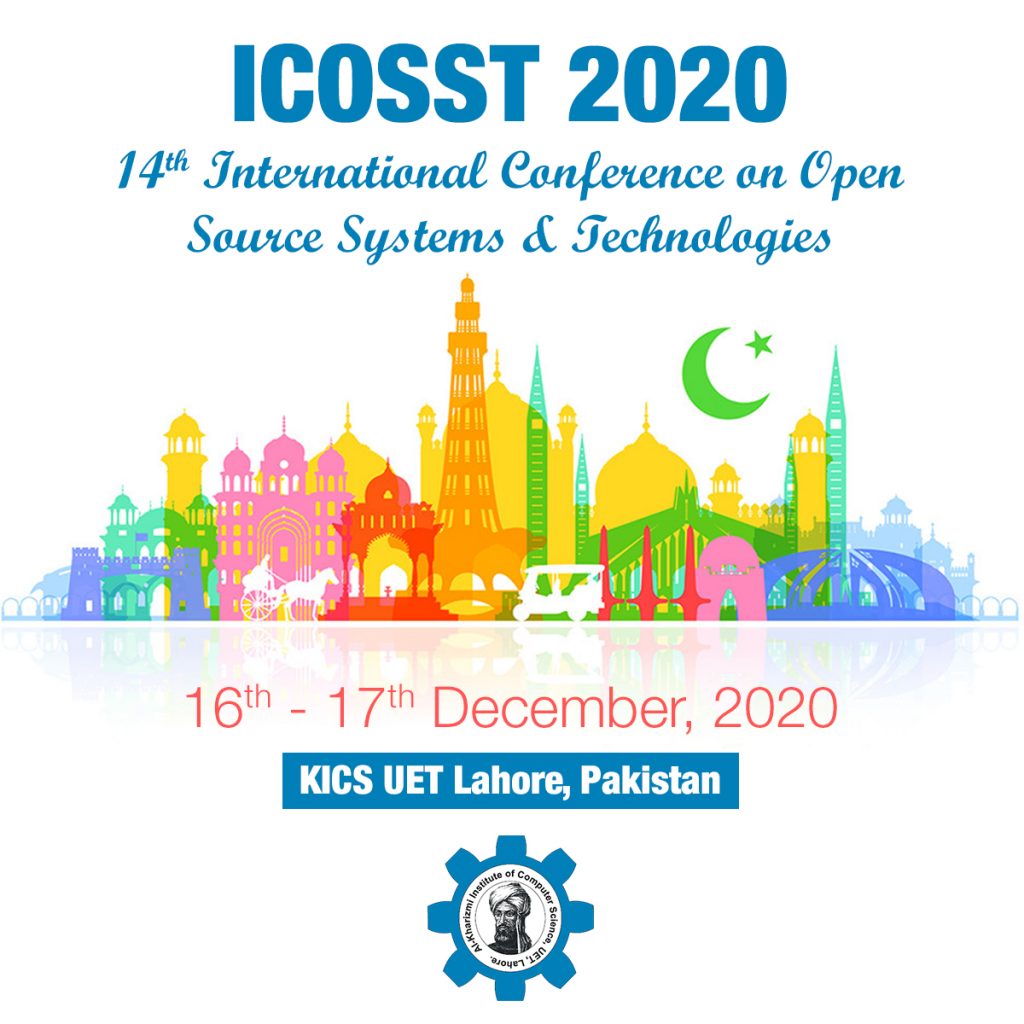The 14th IEEE International conference (ICOSST) will be held in UET Lahore , Pakistan from 16 -17 December 2020.

Open-Source Software (OSS) is an established cross-disciplinary paradigm for distributed enterprise computing and e-Government. It is helping organizations both public and private to keep control on the cost of development and deployment. OSS has not only changed the way software applications are architected, deployed, and consumed but also they are engineered to provide large distributed cross-platforms and frameworks.
IEEE Computer & Communication Societies, Lahore Section, (R10) in Technical Co-sponsorship & in Joint Collaboration with Al-Khawarizmi Institute of Computer Science, UET, Lahore, Pakistan are organizing a two-day event to invite researchers and practitioners from across the world to share their ideas and experiences related to the state-of-the-art and the future of Open Source systems and technologies, software applications, databases, networks, information security, OSS and social innovation, embedded computing, cloud computing, virtualization, AI for knowledge discovery, automation, AI Applications for COVID-19 Detection, Diagnosis, Treatment, Prevention, Evolution, Control and Prediction etc. ICOSST will create a scientific venue where participants can share ideas, strategies, and policies for tackling the development, research and adaptation challenges related to open-source tools and open-source development environments for their customized requirements. For more detail about the areas click here!
Best Paper Award: The “Best Paper Award” will be given to the authors whose paper(s) will be selected by the technical committee among the papers presented in ICOSST 2020. The paper will be evaluated based on relevance to the symposium’s scope, its scientific contribution, writing and author presentation. The technical committee will send its recommendations to the ICOSST steering committee that will finalize the “Best Paper Award”.
Evaluation Criteria: Papers are evaluated based on technical merit, originality, potential impact on the field, clarity of the written paper, and quality of the conference presentation.